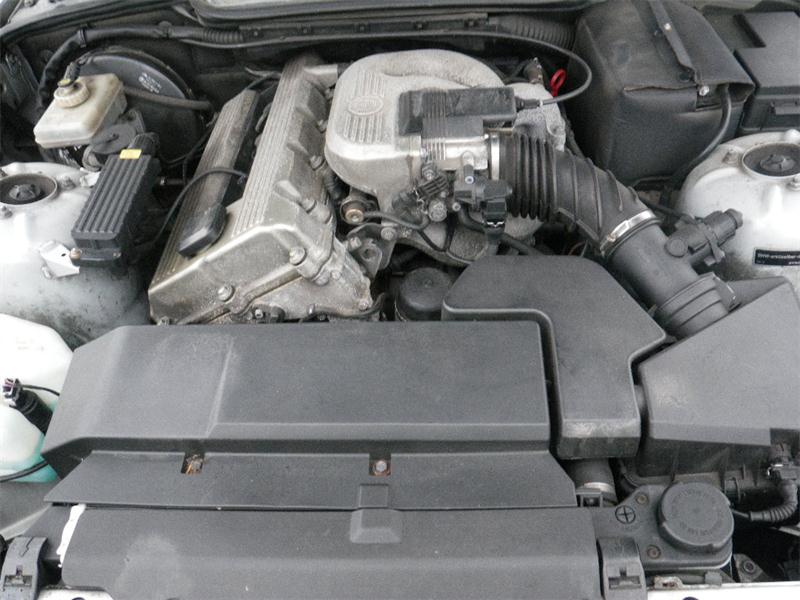Why the BMW 318ti Is a Leading Selection for Automobile Lovers
Why the BMW 318ti Is a Leading Selection for Automobile Lovers
Blog Article
Crucial Considerations for Picking the Finest Engine for Your Needs
In the realm of picking the optimal engine to fulfill your demands, numerous critical aspects demand careful consideration to make sure optimal performance and performance. From the nuanced balance in between power and performance to the often-overlooked elements of upkeep and service requirements, each aspect plays a pivotal function in establishing the most appropriate engine for your specific requirements. As the intricacy of engine modern technologies continues to progress, critical the most fitting alternative demands a deep understanding of the interplay between different factors to consider. By exploring the complex internet of factors that underpin this decision-making procedure, a more clear course emerges towards choosing an engine that not just fulfills yet surpasses your expectations.
Power and Efficiency
When evaluating engines for optimal performance, it is important to prioritize both power output and performance. Power result determines the capability of an engine to produce energy, which directly impacts its performance. A high power result is essential for requiring jobs such as high-speed needs or sturdy applications. It makes certain that the engine can manage the work successfully and effectively. Nonetheless, power alone is not sufficient; effectiveness plays a considerable duty in determining the overall efficiency of an engine. Effectiveness refers to just how well the engine converts fuel right into functional power. A more reliable engine will supply much better mileage, reduced discharges, and reduced operating prices. Striking the best balance in between power output and performance is essential to selecting an engine that satisfies your specific demands. When making this choice, it is important to take into consideration aspects such as the intended use of the engine, ecological effect, and long-term expense ramifications. By carefully examining both power and efficiency, you can pick an engine that delivers optimum performance and fulfills your demands properly.
Fuel Effectiveness and Economic Situation
Gas effectiveness refers to the engine's capability to convert fuel right into power with very little waste, directly impacting operating prices and ecological sustainability. Engines with higher fuel performance not just minimize fuel expenditures yet likewise decrease carbon exhausts, adding to a greener operation.

Compatibility and Application
Considering the gas performance and economic situation of an engine, the following critical facet to address is its compatibility and application within details functional contexts. Compatibility refers to how well the engine integrates with the general system or equipment it powers.
Different engines are designed for specific purposes, whether it be industrial equipment, marine vessels, autos, or power generators. Understanding the designated application allows for the selection of an engine that can supply the required power output, torque, and functional characteristics.
Upkeep and Solution Demands
Maintenance and solution demands play an important duty in ensuring the durability and optimal performance of an engine. Normal upkeep is vital to avoid failures, expand the life expectancy of the engine, and preserve its performance. When picking an engine, it is necessary to consider the supplier's recommended upkeep timetable and the schedule of service facilities or certified specialists.
Elements such as the regularity of oil adjustments, filter substitutes, and overall more helpful hints examinations can significantly impact the engine's performance. Some engines might call for even more regular servicing based upon their layout and usage, while others may have longer periods between upkeep checks. It is vital to comply with these solution requirements to stay clear of costly fixings and unforeseen downtime.

Cost and Spending Plan Considerations
Spending plan restraints frequently play a significant role in the decision-making procedure when picking an engine for a particular application. When considering the cost and budget ramifications of selecting an engine, it is necessary to assess not only the first acquisition price however also the lasting expenditures connected with upkeep, fuel usage, and possible upgrades or repairs. It is critical to strike an equilibrium between the ahead of time cost of the engine and its general lifecycle costs to ensure that the chosen engine continues to be financially sustainable throughout its functional lifespan.
Elements such as gas longevity, efficiency, Homepage and dependability can straight impact the total expense of possession of an engine. While an extra pricey engine might have greater upfront costs, it could potentially lead to lower upkeep and gas expenses in time, therefore using far better worth in the lengthy run. In addition, considering the availability and cost of spare parts, as well as the ease of upkeep and solution, can aid protect against unanticipated economic pressure in the future. By meticulously reviewing these price and spending plan factors to consider, you can make an educated decision that lines up with your financial constraints and functional needs.
Conclusion

Fuel effectiveness refers to the engine's capacity to convert fuel into power with minimal waste, directly affecting operating prices and environmental sustainability.Elements affecting gas efficiency include engine style, burning performance, and overall performance optimization. Furthermore, choosing the ideal gas type and grade as advised by the engine manufacturer can even more improve effectiveness and extend engine life-span.
Engines with good service attributes and conveniently available parts can reduce maintenance costs and reduce the time the engine is out of operation - bmw 318ti. It is crucial to strike a balance between the upfront cost of the engine and its general lifecycle expenses to make sure that the picked engine continues to be monetarily lasting throughout its functional life-span
Report this page